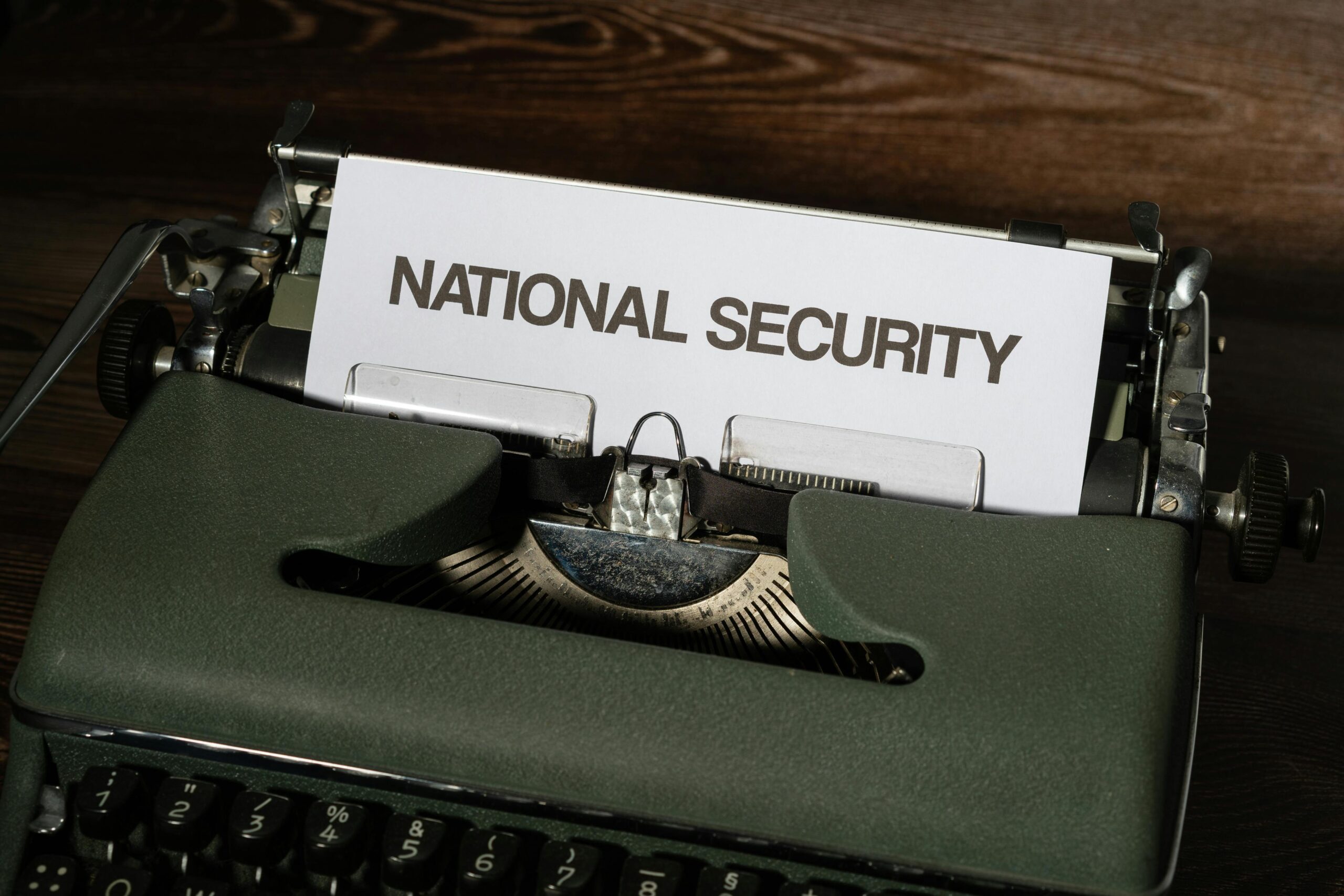Unlocking the Mysteries of the Defense Counterintelligence and Security Agency: Secrets You Must Know
Have you ever wondered what powers the Defense Counterintelligence and Security Agency (DCSA) behind the scenes? This agency plays a critical role in safeguarding national security, but many of its operations remain shrouded in secrecy. In this article, we dive deep into the secrets of the Defense Counterintelligence and Security Agency, revealing what makes it one of the most vital yet least understood organizations in the defense sector. If you’re curious about how defense counterintelligence works or what the DCSA does to protect America’s secrets, you’re in the right place!
The Defense Counterintelligence and Security Agency is responsible for conducting background investigations, overseeing security clearances, and protecting sensitive information across the Department of Defense. But did you know that the DCSA also plays a significant role in combating insider threats and cyber espionage? These are just some of the powerful functions of the DCSA that keep our nation’s defense systems secure from foreign adversaries and internal risks. Understanding these aspects not only highlights the agency’s importance but also reveals how it adapts to emerging threats in today’s digital age.
Moreover, the DCSA’s influence extends beyond just defense. Its efforts in counterintelligence and security operations impact private contractors, government agencies, and even international partners. So, what are the key challenges the DCSA faces today? How does it balance transparency with confidentiality? Stay tuned as we uncover the top secrets and strategic insights of the Defense Counterintelligence and Security Agency, and why its mission is more crucial now than ever before.
Top 7 Insider Secrets About the Defense Counterintelligence and Security Agency You Need to Know
When it comes to national security in the United States, many agencies work behind the scenes to protect the country. One such organization, often overlooked but incredibly important, is the Defense Counterintelligence and Security Agency (DCSA). If you haven’t heard much about it, you are not alone. Many people confuse it with other intelligence bodies, though it plays a unique role that is crucial for the defense sector. Here, we uncover the top 7 insider secrets about the Defense Counterintelligence and Security Agency you need to know, revealing facts and insights that you probably won’t find in everyday news reports.
What is the Defense Counterintelligence and Security Agency (DCSA)?
Before diving into secrets, a quick background is necessary. The DCSA is a federal agency under the Department of Defense (DoD) responsible for conducting background investigations, overseeing security clearances, and providing counterintelligence support. It was formerly known as the Defense Security Service until it was renamed and reorganized in 2019. The agency’s main goal is to safeguard classified information and ensure that individuals with access to sensitive data do not pose a security risk.
The DCSA primarily serves the DoD but also supports other federal agencies and industry partners. Its work includes evaluating personnel, protecting government contractors, and defending against insider threats.
1. DCSA Runs the Largest Background Investigation Program in the U.S.
One of the most surprising facts about DCSA is it operates the biggest background investigation program for federal employees and contractors. This task includes conducting millions of investigations annually. These background checks are required for security clearance eligibility, ensuring that only trustworthy individuals gain access to classified information. The scale of this operation is massive, involving extensive data collection, interviews, and verification processes.
2. The Agency Also Handles Industrial Security
Many people don’t realize that the DCSA also manages industrial security for companies working with the DoD. That means if a private company wants to work on defense contracts involving classified information, DCSA oversees their security programs. This includes inspecting facilities, ensuring compliance with security regulations, and providing guidance to prevent espionage or leaks. The agency essentially acts as a watchdog guarding the defense industrial base.
3. DCSA Provides Counterintelligence Support, Not Just Security Clearances
While background checks are a major part of its mission, DCSA also offers counterintelligence services. This means they actively work to identify and mitigate threats from foreign intelligence entities that might try to infiltrate or sabotage U.S. defense operations. Their analysts monitor suspicious activities, conduct investigations, and collaborate with other intelligence organizations. This dual role makes DCSA a vital player in both personnel security and defensive intelligence efforts.
4. The Agency Has a Nationwide Presence
Unlike some intelligence agencies concentrated in Washington D.C., DCSA operates across the entire country. It has regional offices and security specialists embedded in various military installations, federal agencies, and contractor locations. This wide footprint allows them to respond quickly to potential security issues and maintain close contact with the people and organizations they oversee. It also means that DCSA’s influence stretches beyond just the Pentagon or government buildings.
5. DCSA Uses Advanced Technology to Improve Security Processes
Behind the scenes, the Defense Counterintelligence and Security Agency employs sophisticated technology to streamline background investigations and enhance threat detection. Automated systems help process vast amounts of data faster, while artificial intelligence tools assist analysts in spotting patterns that humans might miss. This tech-driven approach improves efficiency but also raises questions about privacy and data security, topics that DCSA continuously navigates as part of its mission.
6. The Importance of Insider Threat Programs at DCSA
One of the most critical but lesser-known functions of DCSA is its focus on insider threat programs. These programs aim to detect and prevent harmful actions by trusted individuals within organizations, such as espionage, sabotage, or unauthorized disclosures. DCSA develops policies, provides training, and offers resources to help agencies and contractors recognize warning signs early. Insider threats have become a top security concern, and DCSA plays a frontline role in combating them.
7. The Agency Faces Unique Challenges in the Modern Security Landscape
In today’s world, threats to national security are constantly evolving. Cyberattacks, social engineering, and sophisticated espionage techniques keep agencies like DCSA on their toes. Unlike traditional intelligence agencies that might focus on foreign intelligence collection, DCSA must balance protecting classified information with facilitating the flow of people and information necessary for defense operations. This balancing act is complicated by budget constraints, political pressures, and the sheer volume of investigations required.
Quick Comparison: DCSA vs. Other Intelligence Agencies
| Aspect | DCSA | CIA | FBI |
|---|---|---|---|
| Primary Mission | Personnel security, background checks, industrial security, counterintelligence support | Foreign intelligence gathering | Domestic law enforcement and counterintelligence |
| Operates Under | Department |
How the Defense Counterintelligence and Security Agency Protects National Security: Key Insights
The Defense Counterintelligence and Security Agency, often known by its acronym DCSA, plays a crucial role in safeguarding the United States from threats that many people never see or understand fully. This agency operates behind the scenes, yet its influence on national security is massive and far-reaching. If you’ve ever wondered how the U.S. protects its secrets, secures its personnel, and prevents espionage, then learning about DCSA is a must.
What is the Defense Counterintelligence and Security Agency?
DCSA is a federal agency that falls under the Department of Defense. It was formed to consolidate various security and counterintelligence functions that were once scattered across multiple organizations. The primary mission of the DCSA is to protect the U.S. defense industry and government from insider threats, espionage, and unauthorized access to classified information.
It conduct background investigations for millions of government employees and contractors, ensuring only trustworthy individuals gain access to sensitive information. This agency also oversees security clearances, which are essential for working in many defense-related jobs.
Key Functions of the Defense Counterintelligence and Security Agency
The DCSA’s responsibilities are broad, but some of the most important include:
- Background Investigations: Millions of personnel must go through rigorous checks to determine their suitability for access to classified information. DCSA manages this massive vetting process.
- Security Education and Training: The agency provides programs to educate government workers and contractors on how to safeguard sensitive data.
- Facility Security Oversight: DCSA audits and inspects defense contractors to ensure they meet security standards required to handle classified materials.
- Counterintelligence Operations: It identify and mitigate insider threats, such as espionage or sabotage, before they can cause harm.
- Policy Development: DCSA helps craft security policies that guide how classified information should be protected across the defense sector.
Historical Context: How DCSA Came to Be
Before DCSA was created, several agencies managed defense security and counterintelligence separately, leading to inefficiencies and overlapping duties. In 2019, the Department of Defense decided to merge the National Background Investigations Bureau and the Defense Security Service to form the DCSA. This consolidation was aimed at streamlining operations, improving security protocols, and providing better service to the defense community.
Since then, DCSA became the largest security clearance investigation agency in the U.S., conducting over 2 million background investigations annually. This scale shows just how vital the agency is to the overall national security framework.
Secrets You Must Know About the Defense Counterintelligence and Security Agency
There are several lesser-known facts about DCSA that people outside the defense and intelligence community rarely learn:
- DCSA is not just about investigations: While background checks are a big part, it also works closely with intelligence agencies to detect threats from foreign adversaries inside the U.S.
- It supports cybersecurity efforts: The agency help to secure digital information systems used by defense contractors, which are frequent targets for hacking attempts.
- DCSA influences international security: It collaborates with allied countries to protect shared defense technologies and secrets.
- It has a fast response team: When a security breach or insider threat is detected, DCSA deploys experts to investigate and neutralize the issue quickly.
Comparing DCSA with Other Security Agencies
It’s easy to confuse DCSA with organizations like the FBI, CIA, or NSA because all work in security or intelligence. However, here’s a simple comparison to understand their different roles:
| Agency | Primary Focus | Main Activities |
|---|---|---|
| DCSA | Defense sector security | Background investigations, clearance management, contractor oversight |
| FBI | Domestic law enforcement | Criminal investigations, counterterrorism, counterintelligence within U.S. |
| CIA | Foreign intelligence | Overseas intelligence gathering, covert operations |
| NSA | Signals intelligence | Electronic surveillance, cybersecurity, cryptography |
Understanding this helps to see why DCSA is unique — it specifically ensures that those who work on defense-related projects are trustworthy and that secrets stay secret.
Practical Examples of How DCSA Protects National Security
Imagine a defense contractor working on a new missile technology. Before any engineer or technician can access the design plans, they must pass a detailed background check by DCSA. This check looks for any criminal history, financial problems, or foreign contacts that might make a person vulnerable to bribery or coercion.
In another case, if an employee at a defense company exhibits suspicious behavior, like unauthorized copying of files, DCSA’s counterintelligence team would investigate. They might find evidence of espionage and work with law enforcement to stop it. This proactive approach prevents critical secrets from falling into the hands of adversaries.
Challenges and Future Directions for DCSA
The threat landscape is always changing. Cyber attacks are becoming more sophisticated, insider threats harder to detect, and foreign espionage efforts more aggressive. DCSA faces challenges such as:
- Keeping up with
Unveiling the Role of the Defense Counterintelligence and Security Agency in Modern Threat Detection
Unveiling the Role of the Defense Counterintelligence and Security Agency in Modern Threat Detection
In today’s world where threats evolve faster than ever, the Defense Counterintelligence and Security Agency (DCSA) plays a crucial role that many people might not fully understand. This agency, often working quietly behind the scenes, is central to the United States’ efforts to protect its national security through intelligence and security measures. But what exactly does the DCSA do, and why is it so important in modern threat detection? In this article, we will uncover some secrets you must know about the Defense Counterintelligence and Security Agency, its history, and how it operates in a complex global environment.
What is the Defense Counterintelligence and Security Agency?
The Defense Counterintelligence and Security Agency, shortened as DCSA, is a federal agency under the U.S. Department of Defense (DoD). It was established in 2019 when the Defense Security Service (DSS) was reorganized and expanded to take on broader responsibilities. The agency focuses primarily on counterintelligence, security clearance investigations, and industrial security oversight for the defense sector. Its mission is to safeguard the United States against foreign intelligence threats and insider risks, especially those that might compromise critical defense information.
Historical Context: How DCSA Came Into Being
Before DCSA, the Defense Security Service had been responsible for many of the same functions but faced increasing demands due to modern threats and the complexity of global espionage. In 2019, the Department of Defense recognized the need to consolidate and improve counterintelligence efforts, which resulted in the creation of the DCSA.
Here’s a brief timeline of key developments:
- 1972: Defense Security Service was created to oversee industrial security.
- 2000s: Increasing cybersecurity threats and insider risks highlighted the need for more specialized counterintelligence.
- 2019: DSS reorganized into the Defense Counterintelligence and Security Agency to expand its scope.
- Present: DCSA works with multiple government agencies, contractors, and international partners to secure defense information.
Core Responsibilities of the Defense Counterintelligence and Security Agency
The DCSA operates in several vital areas. Understanding these can provide insight into how it supports national security:
- Security Clearance Investigations: DCSA conducts millions of background investigations every year to vet individuals who need access to classified information.
- Counterintelligence Operations: The agency identifies and counters threats from foreign intelligence services trying to infiltrate defense programs.
- Industrial Security Oversight: It ensures that defense contractors comply with security requirements to protect sensitive technologies.
- Insider Threat Programs: DCSA monitors and helps prevent insider threats that might come from employees with authorized access.
- Cybersecurity Support: While not a cyber agency per se, DCSA provides guidance and oversight related to safeguarding digital information within defense industry.
Why DCSA is Critical in Modern Threat Detection
Modern threats are not just physical but increasingly digital and covert. The DCSA is positioned uniquely to detect and respond to these. For example, foreign intelligence agencies often try to exploit weaknesses in supply chains or personnel security. The DCSA’s role in vetting and continuous evaluation helps to catch these threats early.
Practical example:
- A defense contractor employee might unknowingly be targeted by a foreign agent. Through DCSA’s continuous evaluation programs, suspicious behaviors or connections can be flagged before any damage occurs.
- The agency also supports cybersecurity initiatives that protect classified networks against hacking attempts, blending traditional counterintelligence with modern technology.
Secrets You Must Know About the Defense Counterintelligence and Security Agency
Many aspects of the DCSA are not widely publicized, partly due to the sensitive nature of its work. However, here are some lesser-known facts:
- DCSA is the largest investigative agency in the U.S. government that handles personnel security investigations, surpassing even the FBI in sheer volume.
- It works closely with the Office of the Director of National Intelligence (ODNI) and the Department of Homeland Security to share intelligence.
- The agency uses advanced data analytics and artificial intelligence tools to analyze patterns and detect potential threats.
- DCSA also plays a role in educating and training defense industry personnel about security best practices.
- Its industrial security program covers more than 13,000 cleared contractor facilities nationwide.
Comparison Table: DCSA vs Other Security Agencies
| Aspect | DCSA | FBI | CIA |
|---|---|---|---|
| Primary Focus | Defense counterintelligence, security clearances | Domestic law enforcement and counterterrorism | Foreign intelligence gathering |
| Number of Personnel Security Investigations | Over 2 million annually | Less in personnel investigations | Limited, focused on overseas ops |
| Industrial Security Oversight | Yes, oversees defense contractors | No | No |
| Use of AI and Data Analytics | Advanced and integral |
Why the Defense Counterintelligence and Security Agency Is Crucial for U.S. Military Operations
The Defense Counterintelligence and Security Agency (DCSA) plays a role that often goes unnoticed by the public, yet it remains absolutely vital to the security and effectiveness of U.S. military operations. Without the DCSA’s work, many aspects of defense would be vulnerable to espionage, sabotage, and other threats that could have catastrophic consequences. This article will explore why the DCSA is so crucial, uncover some secrets about its operations, and provide insights into how it sustains the nation’s military strength.
What is the Defense Counterintelligence and Security Agency?
The DCSA is a federal agency under the Department of Defense. Its mission primarily centers on counterintelligence, security clearance investigations, and overseeing the protection of classified information. Originally parts of its functions were managed by different organizations, but in 2019, the DCSA was officially established to consolidate these efforts and improve efficiency.
Historically, the U.S. military and government have relied on multiple agencies to handle security clearance and counterintelligence separately. This sometimes led to overlaps and delays. The creation of the DCSA aimed to fix those problems by centralizing responsibilities, making the process faster and more secure.
Why the DCSA Matters in Military Operations
Military operations depend heavily on classified information — plans, technologies, and intelligence that must not fall into the wrong hands. The DCSA ensures that this sensitive data stays protected by conducting background checks and continuous monitoring of personnel who access classified materials.
Here are some key reasons why the DCSA is crucial:
- Protecting Classified Information: They vet individuals through rigorous security clearance processes, ensuring only trustworthy people get access.
- Counterintelligence Activities: The agency works to detect and neutralize foreign intelligence threats that might try to infiltrate or sabotage U.S. military efforts.
- Industrial Security Oversight: DCSA supervises defense contractors who handle classified information, making sure they comply with strict security standards.
- Training and Education: They provide training for personnel on how to handle sensitive information and recognize potential security risks.
Without these functions, the military’s plans and operations could be compromised, jeopardizing national security.
Secrets You Must Know About the DCSA
While much of the DCSA’s work is classified, some aspects have become publicly known. Here are some lesser-known facts:
- The agency manages over 4 million personnel security clearances, making it one of the largest security clearance organizations worldwide.
- DCSA uses advanced technology and artificial intelligence tools to detect insider threats and suspicious activities.
- It collaborates with other federal agencies like the FBI and CIA to share intelligence and coordinate counterintelligence efforts.
- The agency also performs vulnerability assessments on military bases and defense contractor facilities.
- DCSA investigations sometimes uncover not only espionage attempts but also fraud and other criminal activities that could harm defense interests.
These secrets highlight how expansive and critical the DCSA’s role is beyond just paperwork and background checks.
Comparing DCSA with Other Security Agencies
To understand the uniqueness of the DCSA, it helps to compare it with other agencies like the FBI or NSA, which also handle intelligence and security.
| Agency | Primary Focus | Military Connection | Public Awareness Level |
|---|---|---|---|
| Defense Counterintelligence and Security Agency (DCSA) | Security clearances, counterintelligence, industrial security | Directly supports DoD and military contractors | Low, mostly behind-the-scenes |
| Federal Bureau of Investigation (FBI) | Domestic intelligence, law enforcement | Supports military indirectly through investigations | High, well-known to public |
| National Security Agency (NSA) | Signals intelligence, cyber security | Supports military cyber operations | Moderate, some classified |
The DCSA’s focus on personnel vetting and industrial security makes it indispensable to military operations, whereas other agencies may focus more broadly on intelligence or law enforcement.
Practical Examples of DCSA Impact
Imagine a scenario where an enemy nation tries to recruit someone with a security clearance to steal sensitive military technology. Without the DCSA’s thorough background checks and ongoing monitoring, this person might gain access without raising alarms. However, because of the agency’s vigilance, suspicious behavior is detected early, preventing a breach.
Another example is during the development of new defense systems. Many private companies work on these projects under government contracts. The DCSA inspects these facilities to ensure no security lapses exist, such as unauthorized personnel access or weak cybersecurity practices. This prevents leaks that could undermine U.S. military advantage.
Key Functions of the DCSA in Simple Terms
- Conducts background investigations for security clearances.
- Monitors cleared personnel to detect risks.
- Oversees security compliance at defense contractor sites.
- Provides counterintelligence support to detect foreign threats.
- Educates workforce about security best practices.
These functions may seem routine, but they form the backbone of protecting vital military secrets.
The Defense Counterintelligence and
Exploring the Latest Technologies Used by the Defense Counterintelligence and Security Agency in 2024
Exploring the Latest Technologies Used by the Defense Counterintelligence and Security Agency in 2024
In the ever-changing landscape of national security, the Defense Counterintelligence and Security Agency (DCSA) continues to evolve with cutting-edge technologies that protect sensitive information and ensure the safety of military operations. In 2024, DCSA embrace new systems and innovative tools designed to counter espionage threats and enhance security protocols across the Department of Defense (DoD). This article will delve into some of the most significant technological advancements used by DCSA, revealing secrets that many not know about this crucial agency.
What Is the Defense Counterintelligence and Security Agency?
Before we dive into technologies, it’s important to understand what DCSA exactly does. Established in 2019, the agency took over many functions previously handled separately by other DoD components, combining counterintelligence, security clearance investigations, and personnel security into one entity. Their mission is to safeguard the defense industrial base and government workforce from insider threats and foreign intelligence activities. Over the years, DCSA has grown to be a central player in protecting classified information by screening millions of personnel and managing critical security programs.
New Technologies Shaping DCSA’s Operations in 2024
The rapid pace of technological development means agencies like DCSA must continuously update their tools. Here are some of the breakthroughs DCSA adopted or expanded this year:
- Artificial Intelligence and Machine Learning: These technologies are used for analyzing massive data sets generated during security clearance investigations. AI helps identify unusual patterns or risk factors that human analysts might miss, speeding up the vetting process while improving accuracy.
- Biometric Authentication Systems: Fingerprint and retina scans remain common, but DCSA now utilize behavioral biometrics such as keystroke dynamics and voice recognition to continuously verify identity during secure access.
- Blockchain for Data Integrity: To prevent tampering with sensitive records, DCSA started experimenting with blockchain technology. This ensures investigation data and clearance statuses remain tamper-proof and transparent.
- Advanced Cybersecurity Tools: The agency deploys next-generation firewalls, intrusion detection systems, and automated threat hunting platforms to defend against cyberattacks targeting its vast information networks.
- Cloud Computing and Secure Data Sharing: Embracing cloud infrastructure enables DCSA to efficiently share information with partner agencies while maintaining strict security controls.
Historical Context: How Technology Transformed DCSA’s Role
DCSA’s origins trace back to the Defense Security Service, but the consolidation and renaming in 2019 marked a shift towards a more integrated approach to security. Early on, investigations relied heavily on manual record checks and interviews, a slow and error-prone process. The introduction of digital databases and biometric tools in the 2000s began transforming workflows, but it wasn’t until recent AI and cybersecurity advances that the agency truly modernized its capabilities.
For instance, before AI adoption, analysts had to sift through thousands of files to detect potential risks. Today, AI algorithms can flag concerns within minutes, allowing human experts to focus on cases requiring judgment. The integration of blockchain is another example: whereas records once stored in isolated databases were vulnerable to hacking or data loss, blockchain provides a decentralized ledger that prevents unauthorized changes.
Secrets You Must Know About DCSA’s Technology Use
While many details about DCSA operations remain classified, some lesser-known facts have emerged through public reports and expert analyses:
- The agency employ predictive analytics to not only detect insider threats but also forecast where espionage attempts might occur next.
- DCSA collaborates with private sector tech companies to develop customized security solutions, including specialized encryption methods and user behavior monitoring.
- Mobile security apps designed for cleared personnel help reduce risks associated with working remotely or accessing classified information offsite.
- The agency runs continuous training programs using virtual reality (VR) to simulate security breach scenarios, preparing employees to respond effectively under pressure.
Practical Examples of DCSA Technology in Action
To understand how these technologies impact real-world security, consider the following scenarios:
- AI-Assisted Background Checks: When a defense contractor applies for a clearance, AI systems analyze social media activity, financial records, and travel history to identify any potential foreign influence or financial coercion risks.
- Blockchain for Clearance Records: Once a clearance is granted, its details are recorded on a blockchain ledger accessible only by authorized personnel, preventing any unauthorized alterations or fraudulent claims.
- Behavioral Biometrics for Access Control: An employee attempting to access a classified database is continuously monitored by voice recognition software that detects anomalies in speech patterns, blocking access if suspicious behavior appears.
- Cyber Threat Hunting: Automated systems scan network traffic for indicators of compromise, alerting DCSA cybersecurity teams to neutralize threats before data breaches occur.
Comparing DCSA’s Technologies with Other Agencies
Compared to other intelligence and security agencies, DCSA is unique because its focus blends counterintelligence with personnel security and industrial protection. Agencies like the FBI or NSA use similar AI
Conclusion
In summary, the Defense Counterintelligence and Security Agency plays a vital role in safeguarding national security by protecting sensitive information and mitigating insider threats. Through its comprehensive approach—ranging from personnel vetting and security clearance management to counterintelligence operations—the agency ensures that critical defense assets remain secure from espionage, sabotage, and cyber threats. Its proactive measures not only strengthen the integrity of defense operations but also foster trust within the workforce and among allied partners. As threats continue to evolve in complexity and scope, the importance of robust counterintelligence and security efforts cannot be overstated. It is essential for organizations and individuals involved in national defense to stay informed and actively support the agency’s mission. By prioritizing security awareness and compliance, we collectively contribute to a safer, more resilient defense infrastructure that protects our nation’s interests now and into the future.

























